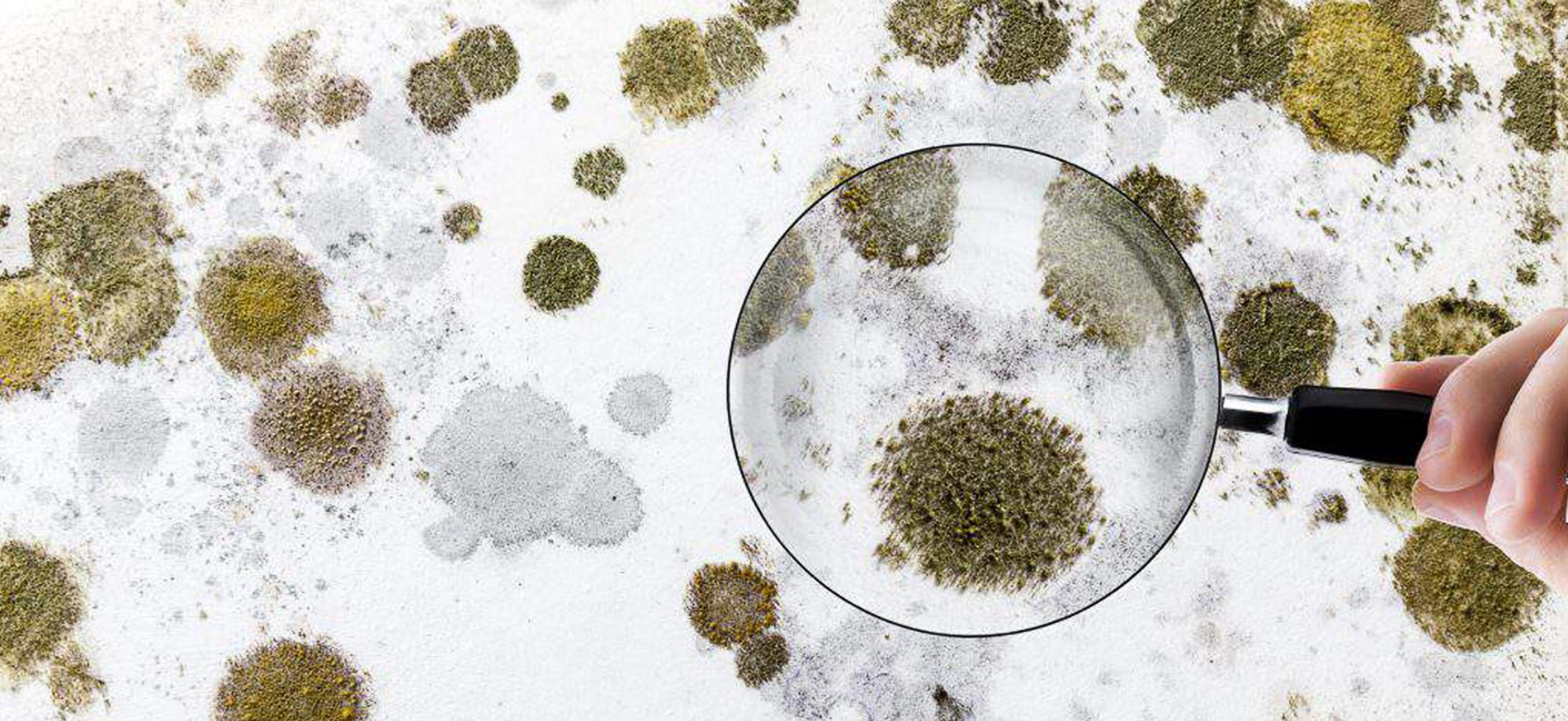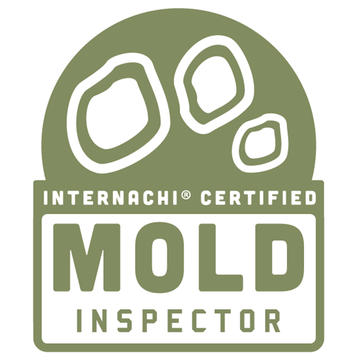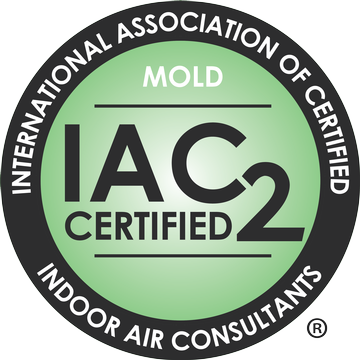Mold Inspection in DC, Maryland and Northern Virginia – Protect Your Home and Health
Our Home Inspector in Fort Washington will Detect the Presence of Mold Growth in Your Home
Mold is a type of fungus that exist almost everywhere. Mold does not need a lot of moisture to grow. A little condensation in a bathroom or around a window sill, for example, can be enough. Common sites for indoor mold growth include bathroom tile and grout, basement walls, and areas around windows and sinks. Common sources of water or moisture include roof leaks, condensation due to high humidity or cold spots in a building, slow leaks at plumbing fixtures, humidification systems, sprinkler systems, and floods. The most common types of indoor mold types are Cladosporium, Penicillium, Aspergillus and Alternaria.
View Sample Report
Living in DC, Maryland, and Northern Virginia where seasonal humidity and weather fluctuations are part of everyday life, homeowners must remain vigilant about mold-related issues. Mold inspection in DC, Maryland and Northern Virginia is a critical service that ensures a safe, mold-free living environment. Whether it’s a historic home in Alexandria, a suburban house in Fairfax, or a city apartment in Washington, D.C., mold doesn't discriminate—it thrives wherever moisture is present.
Mold testing in DC, Maryland and Northern Virginia complements inspection by identifying the specific types and concentrations of mold spores. With moisture-prone areas like basements and crawl spaces being common in homes across Maryland and the D.C. metro area, regular mold inspection becomes more than just preventive care—it becomes essential.
Mold Testing in DC, Maryland and Northern Virginia – What You Need to Know
How Mold Testing in DC, Maryland and Northern Virginia Works
Professional mold testing in DC, Maryland and Northern Virginia involves air sampling, surface sampling, and moisture mapping. Technicians collect these samples from key areas in your home—especially where musty odors or visible mold are present. Samples are then analyzed in certified labs to determine mold types and spore levels.
Why Accurate Testing is Essential for DC, Maryland and Northern Virginia Homes
Due to DC, Maryland's and Northern Virginia humidity, mold can easily grow behind walls, under floors, or within insulation. Without accurate testing, hidden mold issues can escalate into expensive remediation problems. Mold testing in DC, Maryland and Northern Virginia ensures precise identification so you can take targeted, effective actions.
Signs You Need Mold Inspection in DC, Maryland and Northern Virginia Right Away
Visible Mold or Water Damage
Discolored patches on ceilings, walls, or floors are major red flags. Black, green, or white fuzzy spots are often indicative of mold growth. If you’ve experienced a recent leak or flood in DC, Maryland, Maryland, or D.C., mold inspection should be a priority.
Musty Odors and Allergic Reactions
Persistent, unexplained musty smells often mean mold is hiding behind walls or inside HVAC systems. Experiencing respiratory issues like sneezing, coughing, or skin irritation indoors? These are common symptoms of mold exposure, especially in humid environments like DC, Maryland and Northern Virginia.
Past Water Intrusion or Basement Dampness
Basements and crawlspaces in DC, Maryland and Northern Virginia are notorious for holding moisture, especially after heavy rainfall or snowmelt. If your home has experienced water intrusion in the past, it's crucial to schedule regular mold inspections in DC, Maryland and Northern Virginia.
Mold Inspection Process in DC, Maryland and Northern Virginia Homes
Initial Consultation and Visual Assessment
When you contact a mold inspector in DC, Maryland, and Northern Virginia the process begins with a thorough visual inspection. Areas such as attics, basements, laundry rooms, and HVAC systems are examined for signs of moisture and mold.
Moisture Detection and Air Sampling
Professionals use moisture meters and thermal imaging cameras to locate hidden water damage. Air samples are taken to measure indoor mold spore levels, ensuring an accurate overview of your home’s air quality.
Laboratory Analysis and Detailed Reporting
Samples are sent to certified laboratories. Within days, you receive a detailed report highlighting the mold types present, affected areas, and recommendations. This report is a critical part of mold testing in DC, Maryland, and Northern Virginia giving you the insight needed for proper remediation.
Prevention and Long-Term Protection
Based on your report, mold specialists suggest targeted solutions—whether that's sealing foundation cracks, improving ventilation, or dehumidifying key areas.
Choosing the Right Mold Inspection Service in DC, Maryland and Northern Virginia
Certification, Experience, and Equipment
Make sure your inspector is certified and uses modern equipment like thermal imaging, hygrometers, and HEPA filters. The professionals you hire should also be experienced with DC, Maryland’s and Northern Virginia unique housing styles and environmental challenges.
Read Customer Reviews and Local Reputation
Reputable companies serving DC, Maryland, and Northern Virginia Maryland, and Washington, D.C. often have positive online reviews. Look for consistent feedback on thoroughness, responsiveness, and customer service.
Service Areas Beyond DC, Maryland and Northern Virginia
Choose companies that also serve the surrounding regions like Maryland and D.C., ensuring consistent service even if you move or have multiple properties.
Why Mold Testing in DC, Maryland and Northern Virginia is a Homeowner’s Best Investment
Protecting Health and Indoor Air Quality
Mold exposure has been linked to chronic fatigue, migraines, and respiratory complications. For families in DC, Maryland, and Northern Virginia mold testing can protect the health of children, elderly residents, and anyone with allergies or asthma.
Safeguarding Property and Avoiding Costly Repairs
Catching mold early means avoiding drywall replacement, flooring repairs, and furniture damage. It's a small investment for major protection.
Peace of Mind in Real Estate Transactions
Buying or selling a home? Mold testing in DC, Maryland and Northern Virginia is often a condition of sale. A clean report builds buyer confidence and ensures transparency.
Preventing Mold Growth in DC, Maryland and Northern Virginia Homes
Control Moisture and Improve Airflow
Install exhaust fans in bathrooms, kitchens, and laundry rooms. Use dehumidifiers in basements, especially during DC, Maryland's and Northern Virginia humid summers.
Routine Inspections and Maintenance
Schedule annual mold inspections in DC, Maryland, and Northern Virginia especially if you’ve had past water issues. Keeping up with maintenance is the key to prevention.
Address Water Damage Immediately
Don’t delay fixing leaky roofs, plumbing, or poor grading around your home. Water intrusion is mold’s best friend.
- What are the signs I need a mold inspection in DC, Maryland and Northern Virginia?
- How accurate is mold testing in DC, Maryland and Northern Virginia homes?
- Can mold inspection in DC, Maryland and Northern Virginia help prevent health problems?
- What does mold testing in DC, Maryland and Northern Virginia typically involve?
- How often should I get a mold inspection in DC, Maryland and Northern Virginia?


